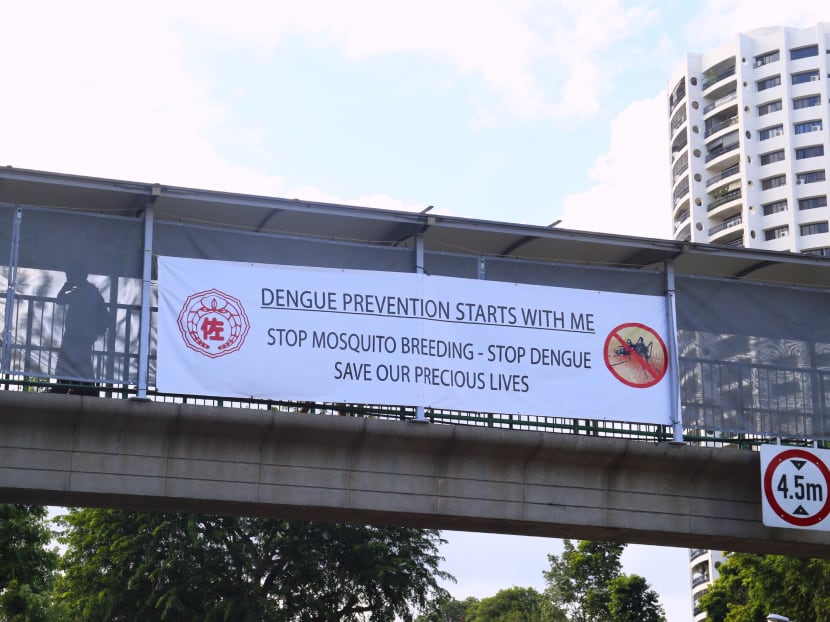High number of dengue cases expected this year
SINGAPORE – The number of dengue cases this year is expected to be high, with cases spiking earlier than usual, said Minister for the Environment and Water Resources Masagos Zulkifli in Parliament today (Jan 27).
SINGAPORE – The number of dengue cases this year is expected to be high, with cases spiking earlier than usual, said Minister for the Environment and Water Resources Masagos Zulkifli in Parliament today (Jan 27).
More than 11,200 dengue cases were reported last year, lower than in 2013 and 2014, but there have been more cases in the past few months compared with corresponding periods in previous years, said Mr Masagos, who was responding to a question from Mr Gan Thiam Poh (Ang Mo Kio GRC) on whether current enforcement and fines were enough to deter owners of properties that are breeding mosquitoes.
Property owners in dengue clusters found with breeding habitats can be fined up to S$5,000. Mr Masagos said last year, more than 1,000 households in dengue clusters were fined. The current penalties have been effective in keeping reoffending rates low, but stiffer penalties will be introduced if necessary, he said.
The Ministry for the Environment and Water Resources has also set aside S$2.5 million each year “to conduct multi-disciplinary research in controlling the mosquito population”, for example, to develop surveillance and control tools such as Gravitraps.
And more than S$3 million has been committed over the next three years to developing a novel method of suppressing the Aedes mosquito population. The Ministry is also tracking the development of the dengue vaccine Dengvaxia, he said.
The number of reported cases of dengue remained high last week with 622 cases reported, higher than any week reported last year, with the National Environment Agency noting there has been a switch in dominant dengue serotype from DENV-1 to DENV-2.
In an article on the dengue outlook for the year in the Ministry of Health’s epidemiological news bulletin published this month, researchers noted that vector control efforts have delayed the exposure to dengue infection till adulthood, and “paradoxically” reduced population immunity to the virus.
Studies of blood donor samples by the Environment Health Institute showed that the epidemic in 2013 made little contribution to raise herd immunity, and Singapore’s resident population remains “highly susceptible” to dengue epidemics associated with any of the four serotypes.
The researchers also noted that the effects of the El Nino phenomenon will contribute to a rise in cases in the coming months, noting that after El Niño peaked in December 1997, there was a spike in dengue cases in January 1998, followed by another in August.
Also, while DENV-1, DEN-2 dengue cases have been dominant, other serotypes have also emerged in clusters. A new strain of DENV-3 was first detected in the week of 31 May to 6 June last year and has consistently been detected since then, while another strain has been circulating since April last year, mainly in the western area of Singapore.
A new strain of DENV-4 has also been circulating since last February in the Tai Hwan Close and Heights area in Serangoon. The researchers noted that El Niño could also affect local epidemiology, “due to the inevitable expansion of genetic diversity of the virus and more frequent introduction of new viruses”.







